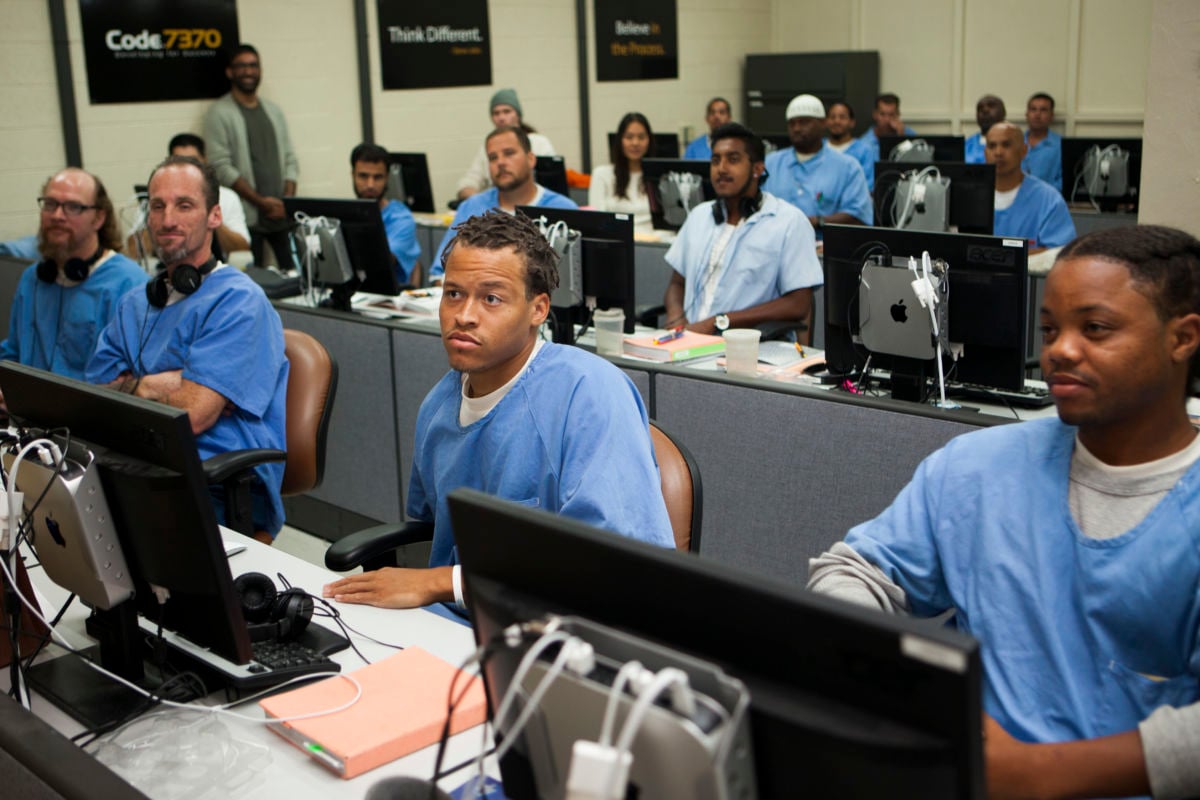Did you know that Truthout is a nonprofit and independently funded by readers like you? If you value what we do, please support our work with a donation.
Congress is thinking of lifting a longstanding ban on federal student aid for those serving time in prison.
The “Restoring Education And Learning Act of 2019,” or the “REAL Act of 2019,” seeks to reinstate federal Pell Grant eligibility for incarcerated individuals. Pell Grants are federal grants meant to help students who need money to go to college.
If Pell Grants were reinstated for those serving time, about 463,000 people in prison would become eligible for the grants.
As director of the University of Baltimore’s Second Chance College Program, I can attest to how such an investment will yield benefits not only for individuals behind prison walls, but for society as a whole.
Here are four reasons to support the reinstatement of the Pell Grant for incarcerated people.
1. Saves Taxpayers Money
Investing in prison education programs will save states money in the long run.
Research has found that when people get education in prison, they are less likely to be incarcerated again. This means that overall, less money would be spent on their time in prison.
Although the amount varies by state, incarcerating one person costs taxpayers US$15,000 to $70,000 per year. In the federal system the cost for each prisoner is around $35,000 a year.
One study found that, over a three-year period, correctional education can save taxpayers $5 for every $1 spent. An argument could also be made that prison education makes communities safer, since people who participate in post-secondary education in prison are 43% less likely to commit another crime.
2. Improves Employment Opportunities
People who participate in academic or vocational programs while in prison are more likely to find work when released. They are also more likely to earn more.
Second Chance Pell programs are required to help prepare participants for the jobs for which they are eligible. For instance, there are thousands of employment barriers and licensing restrictions for people with criminal records.
Prison education programs offered through the U.S. Department of Education’s Second Chance Pell pilot program help prepare participants for high-demand fields. These include certificates or degrees in substance abuse counseling, business administration, horticulture, carpentry, heating and air conditioning, and other fields.
Some programs offer entrepreneurship certificates or degrees to prepare students to create their own business. Others, such as the Bard Prison Initiative, offer associate and bachelor degrees in liberal arts education.
A liberal education can build skills often desired by employers such as critical thinking, ability to work in teams, ethical judgment, self-motivation and strong writing skills.
3. Strengthens Families
Children of the incarcerated suffer greatly while their parents are behind bars. They experience a range of issues such as emotional and behavioral problems, do poorly in school, and are six times more likely to end up in prison themselves.
One way to less the potential for these negative effects is to increase the opportunities for their parents once they return home.
Ensuring that parents are successful and can maintain strong social bonds with their children could potentially disrupt the generational cycle of crime and incarceration.
Educating parents in prison also increases the chances that their children will attain higher levels of education. Research has found that children are more likely to enroll and complete college when their parents are college-educated.
During the first year and a half of the Second Chance Pell pilot program, 954 credentials have been awarded.
4. Won’t Take Away Money for Other Students
Despite the many benefits of removing the ban on Pell Grants, there are critics who believe “criminals” should not get a “free education” at the expense of taxpayers.
As I argue in the book “Education for Liberation: The Politics of Promise and Reform Inside and Beyond America’s Prisons,” awarding Pell to incarcerated students does not take away funds from low-income students in the community.
Students get Pell Grants based on their income. So no one will be denied a Pell Grant simply because someone in prison got one. Restoring Pell Grants for people in prison simply means more federal money being spent on the Pell Grant program.
In 2017-18, the Pell Grant supported 7 million students with $28.2 billion.
If Pell Grants are restored to people in prison, those numbers would rise to about 7.5 million students and $30.9 billion, respectively.
This extra $2.7 billion is a worthy investment for a safer community where everyone has a chance to make a living.
A terrifying moment. We appeal for your support.
In the last weeks, we have witnessed an authoritarian assault on communities in Minnesota and across the nation.
The need for truthful, grassroots reporting is urgent at this cataclysmic historical moment. Yet, Trump-aligned billionaires and other allies have taken over many legacy media outlets — the culmination of a decades-long campaign to place control of the narrative into the hands of the political right.
We refuse to let Trump’s blatant propaganda machine go unchecked. Untethered to corporate ownership or advertisers, Truthout remains fearless in our reporting and our determination to use journalism as a tool for justice.
But we need your help just to fund our basic expenses. Over 80 percent of Truthout’s funding comes from small individual donations from our community of readers, and over a third of our total budget is supported by recurring monthly donors.
Truthout has launched a fundraiser, and we have a goal to add 182 new monthly donors in the next 24 hours. Whether you can make a small monthly donation or a larger one-time gift, Truthout only works with your support.
